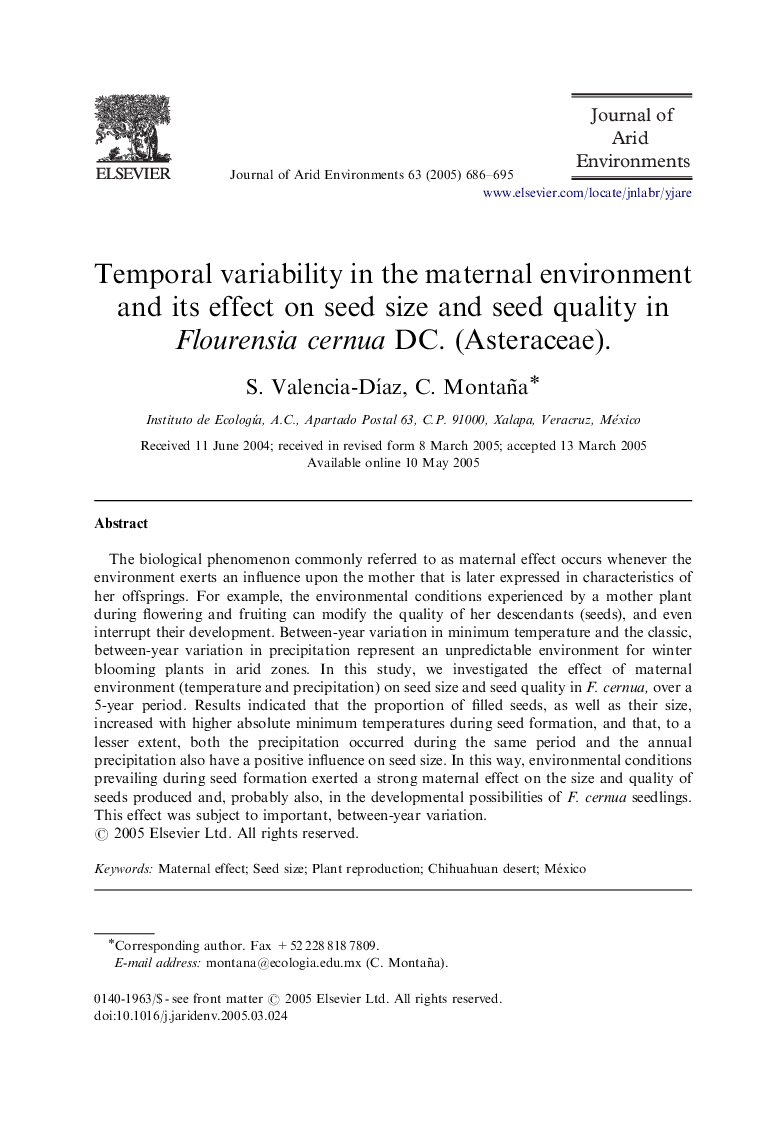| Article ID | Journal | Published Year | Pages | File Type |
|---|---|---|---|---|
| 9447851 | Journal of Arid Environments | 2005 | 10 Pages |
Abstract
The biological phenomenon commonly referred to as maternal effect occurs whenever the environment exerts an influence upon the mother that is later expressed in characteristics of her offsprings. For example, the environmental conditions experienced by a mother plant during flowering and fruiting can modify the quality of her descendants (seeds), and even interrupt their development. Between-year variation in minimum temperature and the classic, between-year variation in precipitation represent an unpredictable environment for winter blooming plants in arid zones. In this study, we investigated the effect of maternal environment (temperature and precipitation) on seed size and seed quality in F. cernua, over a 5-year period. Results indicated that the proportion of filled seeds, as well as their size, increased with higher absolute minimum temperatures during seed formation, and that, to a lesser extent, both the precipitation occurred during the same period and the annual precipitation also have a positive influence on seed size. In this way, environmental conditions prevailing during seed formation exerted a strong maternal effect on the size and quality of seeds produced and, probably also, in the developmental possibilities of F. cernua seedlings. This effect was subject to important, between-year variation.
Related Topics
Physical Sciences and Engineering
Earth and Planetary Sciences
Earth-Surface Processes
Authors
S. Valencia-DÃaz, C. Montaña,
